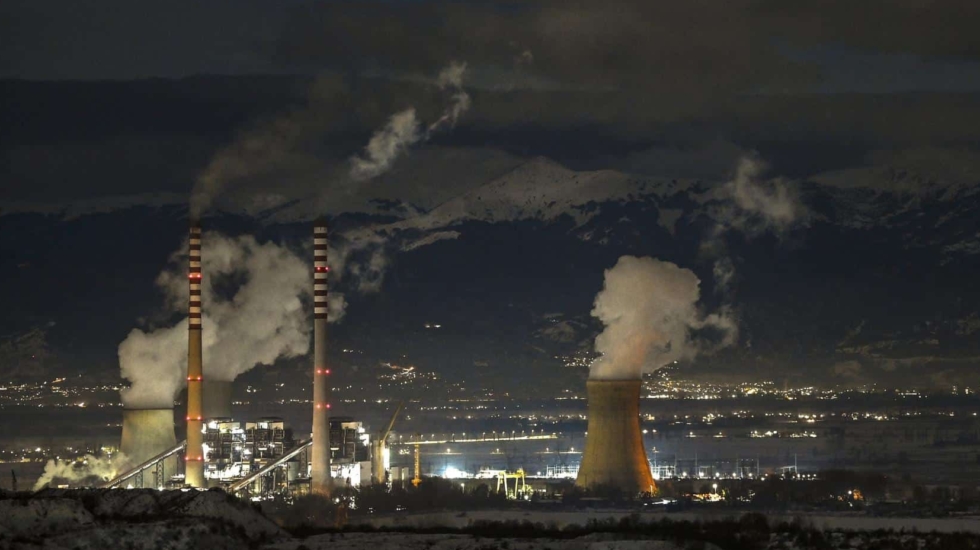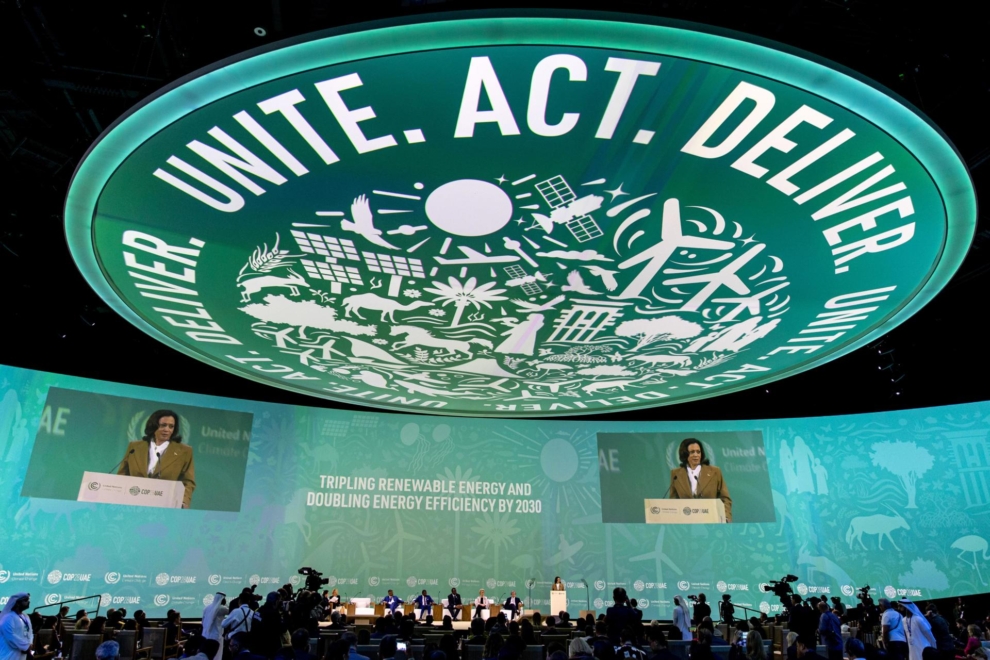

Thermal power plant in Bitola, North Macedonia.
The future of fossil fuels. This is the main issue to be discussed at the UN Climate Change Conference (COP28), which is taking place these days in Dubai. Pressure from various sectors to ban them is increasing.but the big business they represent for many companies, and current society’s huge dependence on them, complicates the debate.
According to this, There is expected to be a lot of talk about carbon capture during these negotiations.It is even expected that major oil and gas producing countries will present a general plan to use this technology. This is a method for extracting carbon from the air and storing it (or capturing it before it reaches the atmosphere), but it is very underdeveloped. Some believe this is the solution to climate change. Others are not so optimistic.
Environmental organizations belong to the second group. And his speech is unanimous. “We believe that this is not a real solution. There might be some additionbut the only way to combat climate change is to reduce emissions,” explains S.Ergio Bonati, WWF climate and energy program specialist. “The industries that are most interested in this technology are those that produce and use fossil fuels because they see it as an escape route to continue doing things the same way,” he adds.
In the same spirit he points out Javier Andaluz Prieto, Climate and Energy Coordinator at Ecologuestas en Acción: “We consider this a false decision. We can debate to what extent this may be the only viable solution for some sectors of the industry, but the reality is that all the experiments that have been done so far have shown that it has no effectiveness. And if one day this happens, it will be very limited, but will not be able to compensate for large-scale gas emissions.”
In addition, Andaluz notes that carbon capture has other disadvantages. How detailed Storing carbon dioxide underground can also be problematic., because “it’s not a safe place” and you might run away. For this reason, he believes that this technology is being used for “propaganda” rather than “real” interests, despite the fact that “science has clearly stated that fossil fuels must go away and that we cannot think of this technology as a big deal.” solution.
“Although Major oil and gas companies appear to be betting on carbon capture and storage projects To offset rising emissions, the history of these technologies has always been one of unfulfilled expectations and technical difficulties. The best way to reduce emissions remains to gradually reduce the development and burning of fossil fuels,” they say from German NGO Urgewald.
WWF explains in detail what currently exists about 40 global business cases for carbon capture and storagemainly in the US, which together with the UK is one of the countries that expects the largest investment in this technology in the coming years.
Economic impact
Another important point when analyzing carbon capture is the cost of implementing this method, which is very expensive. Just this Monday Oxford University (UK) published a report analyzing how much it would cost us to implement this technology globally to make it effective in combating climate change. According to them, it will be necessary to invest $30 billion more than if we had chosen a path based on renewables, energy efficiency and electrification.n. Therefore, relying on carbon capture would be “extremely economically harmful” for them.
“These technologies raise many doubts about its economic profitability. This is why the private sector and potential investors are not very motivated. There is no market in which captured carbon can be used and nothing is being developed to encourage investment. So there is no particular interest,” Bonati sums up.
SMC Spain remembers that just a few days ago Fatih Birol, Executive Director of the International Energy Agency, He called extensive developments in carbon capture “fantasy.” Also what think tank Influence map just published a study showing that promoting carbon capture in most cases does not follow the paths recommended by the IPCC. And what happened last week Center for International Environmental Law released a report showing that nearly all of the world’s offshore carbon capture and storage projects have encountered unexpected problems or failed outright.

COP28 debate
It makes little sense for environmental groups to raise the debate about whether carbon capture could be a large-scale solution to combat climate change until COP28. And they justify this by explaining that Tackling climate change is ‘urgent’“So they can’t waste time on a technology that they don’t think has demonstrated enough capability today to be considered.
However they will is very careful about which countries ultimately decide to capture carbon dioxide at this summit. Bonati explains: “We may be concerned about the approach they are taking. The fact that it is used as an assistive technology is not a negative thing. But we risk depending on it and ultimately failing to achieve climate goals.”
“In general, most countries and a significant part of the economic sector agree with our vision. And the EU too. In some cases, it is true that the environmental sector is practically a niche, and we choose another one of the niches. general approaches. But In this case, many agree that carbon capture is not the answer.”, concludes the WWF expert.
Source: El Independiente